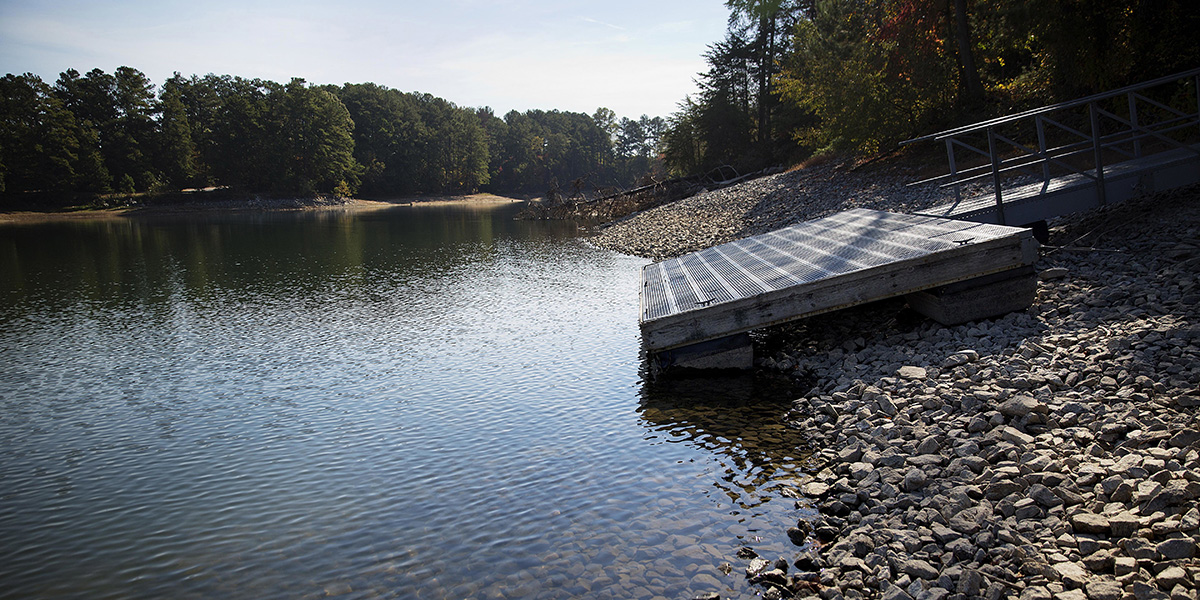Amid Drought, Gov. Deal Bans Fireworks In Ga. Counties

In this Wednesday, Oct. 26, 2016 photo, a floating dock sits on the shore as Lake Lanier water levels recede about eight feet below normal in Buford, Ga. Some of the South’s most beautiful mountains and valleys this fall are filled with desperation, as a worsening drought kills crops, threatens cattle and sinks lakes to … Continued
Fireworks are now banned in more than 100 counties in Georgia, including the counties that make up metro Atlanta. Gov. Nathan Deal issued an executive order on Monday that declares a drought in those counties, thereby enabling him to restrict fireworks.
Water use restrictions in response to the drought are not yet in place in Georgia, though the governor told WABE that the state’s drought response would be stepped up soon.
In North Georgia and near Atlanta, the Chattahoochee, Flint and Coosa rivers are deep in a drought that started this summer and has spread south to cover much of the state over the past few months.
“Like across the metro area and all of North Georgia, we’re extremely concerned about what we’re seeing in terms of historic lows, whether it’s soil moisture or even just the water supply itself,” said Lillian Govus, director of communications at Atlanta’s Department of Watershed Management. “A lot of us depend on the Chattahoochee River.”
Most of metro Atlanta gets its water from the Chattahoochee, which flows from Lake Lanier.
“At this point you’re getting, you know, virtually no water coming into the lake at all,” said Pat Robbins with the U.S. Army Corps of Engineers, which manages Lake Lanier.
The amount of water flowing into Lake Lanier and the other lakes on the Chattahoochee River, including West Point, is at or near historic lows, said Robbins.
In September, the state’s Environmental Protection Division instituted a “Level 1” drought response in 53 counties, including the Atlanta area. It does not require any cuts to water use. A “Level 2” response would come with some restrictions, including limiting days of the week when outdoor watering is allowed.
“We are encouraging the community to take all of the conservation measures that they can,” said Govus.
“Agricultural impacts have been brutal,” said state climatologist Bill Murphey. “Peanut farmers are really getting hurt big time from the dry soils. Hay, pasture, fields, forage you use to feed livestock have really gotten hammered.
The National Weather Service forecasts that the drought will continue at least through early-2017.
“The thing to remember about a drought, it takes a long time to go into one, but it also takes a long time to come out of it, too,” said Murphey.
9(MDAxODM0MDY4MDEyMTY4NDA3MzI3YjkzMw004))








